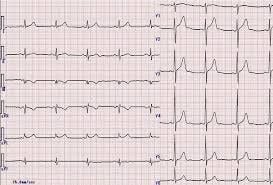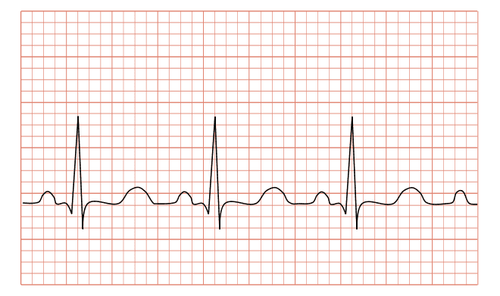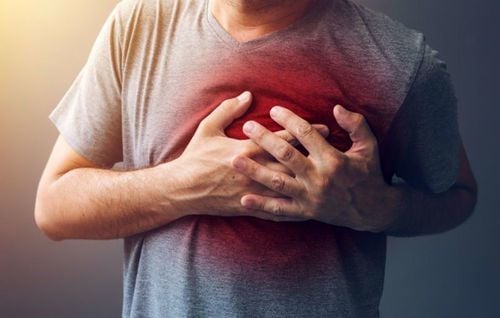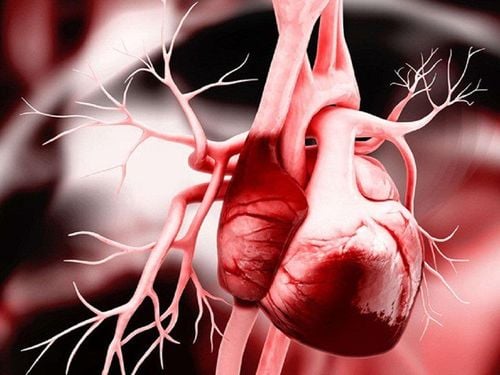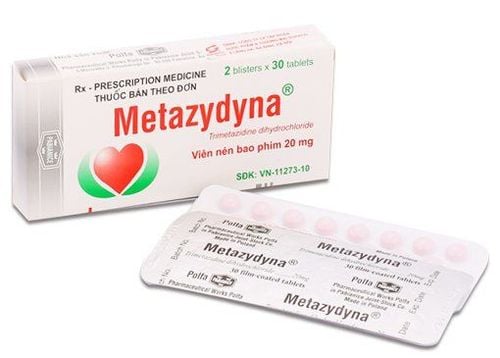This is an automatically translated article.
The article was professionally consulted by BSCK II Nguyen Quoc Viet - Interventional Cardiologist - Department of Medical Examination & Internal Medicine - Vinmec Danang International General Hospital.Electrocardiogram is a very common test in most medical facilities today. This is a fairly simple subclinical test that does not cause complications for the patient but has a very high diagnostic value.
1. What is electrocardiogram?
An electrocardiogram (ECG) is a graph that records the changes in electrical currents inside the heart. As a non-invasive, non-invasive, and fast results.Electrocardiogram is often used in medicine, this is a common test to detect some diseases and monitor the condition of the heart in many situations, cardiovascular diseases. The electrocardiogram is also standard equipment in the operating room and in the ambulance.
2. How does an electrocardiogram work?
The heart contracts to a rhythm and is controlled by a conduction system in the heart muscle. The electrical currents of the heart are very small, only a few thousandths of a volt, but can be detected from electrodes placed on the patient's arms, legs and chest transmitted to the recorder. These electrodes (sensors) are usually kept for several minutes. The electrical recorder will amplify the signal and record it on the electrocardiogram.Electrocardiogram lines are shown as curved lines, up and down that vary with the rhythm of the heart's contractions. When measuring the electrocardiogram, the patient is in the supine position, so that the doctors attach the electrodes from the electrocardiogram to the heart, wrist, and ankle areas of the patient according to defined positions. These electrodes are attached to the skin and are painless during the measurement.
3. Electrocardiogram for what?
Electrocardiogram is one of the routine tests in the hospital. The purpose of an electrocardiogram examination includes:Checking the heart rate, diagnosing heart rhythm disorders.

4. When should ECG be measured?
Electrocardiogram may be indicated by the doctor in the following cases:Examining and diagnosing cardiovascular diseases in cases where there are manifestations such as: arrhythmia, shortness of breath, chest pain. .. Check and monitor the status of patients diagnosed with diseases such as: heart failure, open heart valve, myocardial ischemia, myocardial infarction, patients with hypertension, diabetes ... Screening for risk of cardiovascular diseases Preparing for surgery...
5. Limitations of Electrocardiogram
The electrocardiogram is a simple and valuable test. Sometimes an electrocardiogram can definitively diagnose a heart condition. However, in some cases, an electrocardiogram cannot rule out serious cardiac conditions. For example, if an irregular heartbeat appears and disappears, the ECG will be recorded at normal intervals between irregular rhythm occurrences.Also, not all heart attacks can be detected with an electrocardiogram. Common heart disease such as angina also cannot be detected by routine electrocardiogram. Specialized ECG measurement sometimes helps to overcome some limitations of routine ECG, which are:
Stress ECG: performed during exertion (running on a roller mat or cycling). This helps assess the severity of the blockage of the coronary arteries causing the angina. Ambulatory ECG: The patient will wear a small machine that continuously records the heartbeat. This method records the electrical activity of the heart while walking (ambulatory) and performing normal daily activities in order to detect abnormal heart rhythms, which may appear and then disappear. Electrocardiographic activity is usually recorded for 24-48 hours.
6. What should be kept in mind when performing an electrocardiogram?
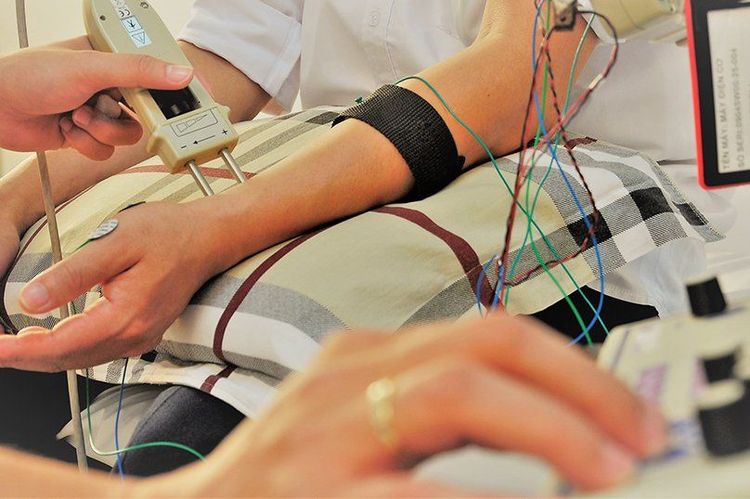
When performing electrocardiograms at Vinmec International General Hospital, patients can rest assured because there is not only a standard procedure, modern machinery, but also a team. The team of highly skilled doctors and nurses across the country, thus giving accurate diagnosis results, greatly contributes to the identification of the disease and the stage of the disease.
Doctor Nguyen Quoc Viet has more than 20 years of experience in the examination and treatment of cardiovascular diseases and Cardiovascular Interventions (Including angiography, dilation, stenting of coronary arteries, renal arteries...), placing temporary, permanent pacemaker... Before working at the Department of Medical Examination & Internal Medicine, Vinmec International General Hospital Da Nang, the doctor used to work for a long time at Da Nang Hospital.
Please dial HOTLINE for more information or register for an appointment HERE. Download MyVinmec app to make appointments faster and to manage your bookings easily.





